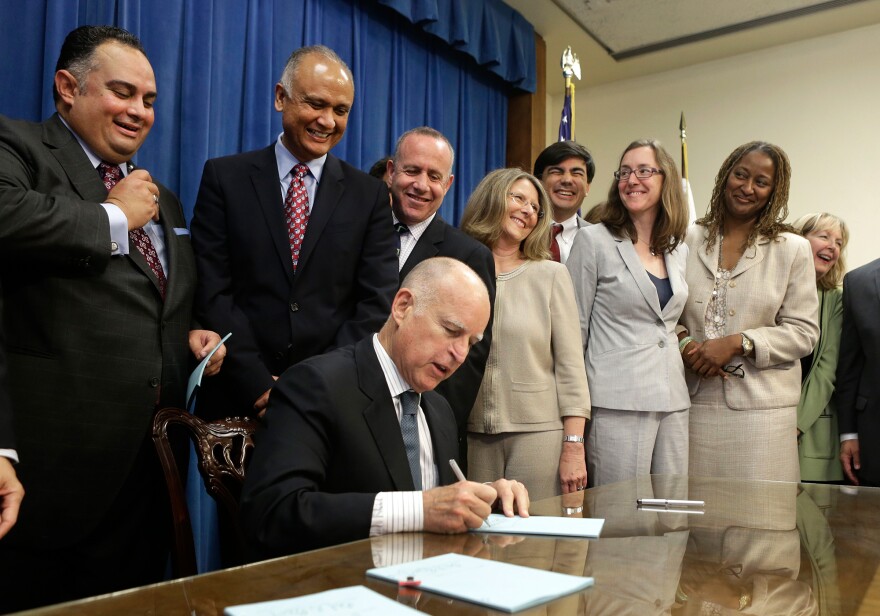President-elect Donald Trump has vowed that he will repeal and replace Obamacare. Specifics are scarce, but one plan Trump has outlined would change how the federal government funds Medicaid, health coverage for low-income people.
Twenty-million Americans now have health coverage because of Obamacare. A full quarter of them are in California. And most of them are covered by Medi-Cal, California's version of Medicaid.
"Winding back the clock would create all kinds of turbulence and disruption," says Larry Levitt, senior vice president for special initiatives at the Kaiser Family Foundation.
Right now, the federal government shares the cost of Medicaid with the states, no matter how many people are enrolled. But Trump wants to put a limit on that funding and give states a fixed pot of money called a block grant.
"A block grant would give California greater flexibility in running the Medi-Cal program, but it would also give the state less money," Levitt says.
California would feel the pain more than other states. "The effect is magnified in California in part because the state has been so successful in getting people signed up for coverage," Levitt says.
And in California, 62 percent of Medi-Cal enrollees who have signed up since Obamacare allowed states to expand Medicaid are Latino, African-American, or Asian-American.
To save money, some states could pay doctors and hospitals less. But in California, payment rates are already the second lowest in the country.
"California can't really pay much less than it does to providers," says Gerald Kominski, a professor of health at the University of California, Los Angeles.
In the face of severe budget cuts, Kominski says, the only choice California really would have is to reduce services or reduce the number of people who get Medi-Cal.
"That would have a devastating consequence on the Medicaid expansion population in California, and would basically put everyone who's been newly enrolled in the program back off the program," he says.
It's unclear how soon a Trump administration would change Medicaid funding, so health advocates are encouraging people to continue signing up for Medicaid and other coverage during the current Obamacare open enrollment season.
"California is not an island," says Anthony Wright, executive director of Health Access, an advocacy group, adding that the state "must engage fully in the coming national debate on the future of health reform — especially as an example of what has been achieved, and what we can't give up."
This story is part of a reporting partnership with NPR, KQED and Kaiser Health News, which is an editorially independent news service that is part of the nonpartisan Henry J. Kaiser Family Foundation.
Copyright 2016 KQED


